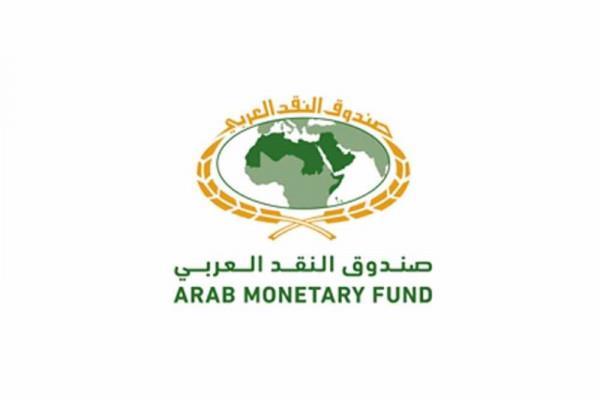
UAE- AMF releases general guidelines for central banks to deal with implications of natural disasters on financial stability
(MENAFN- Emirates News Agency (WAM)) ABU DHABI, 24th June, 2020 (WAM) -- In the framework of its mandate to offer the support to its member states in the field of economic, financial and monetary reforms promoting financial stability in the Arab region, the Arab Monetary Fund (AMF) has issued "General Guidelines for Central Banks to deal with the implications of natural disasters and climate changes on banking system and financial stability".
The guiding principles include a set of recommendations related to the central bank policy to strengthening the system of natural disasters and climate change management. The guiding principles confirm the importance for central bank to adopt a comprehensive risk management policy that includes implications of climate change and natural disasters and how to deal with them. In addition Central Banks to constitute an ad-hoc committee to manage natural disasters (or adding catastrophe management to the framework of the committee of crisis management) as well as defining its missions and responsibilities which include, among others, setting up recovery plans to address the effects of climate change and natural disasters, recover from their effects and return to work Normally.
Moreover, the guiding principles emphasise the need to set a charter of cooperation that organizes coordination and exchange of information between central bank and other entities such as environment and natural disasters related research centers. This cooperation should be framed in a strategic partnership enabling central bank to get from these entities and research centers their expectations about the possibility of getting or recurring natural disasters in all its forms to be better prepared by the central bank to oversee the policies that deal with the results of those disasters on the financial and economic systems.
The principles recommend also the importance for central banks to set a plan to ensure continuity of activities within its basic central systems such as the RTGS and SWIFT, systems of investment portfolio management, Debt issuances, foreign currency reserves, open market operations and keep it updated on regular basis. In addition, the plan should define and assess risks that payments systems may be exposed to during natural disasters, while taking the necessary measures to confront and deal with them, in a manner that preserves the operations and activities of the central bank and the banking sector to fulfill their domestic and international obligations.
On the other hand, the principles emphasise the necessity for the Central Bank to develop set of instructions for the financial sector that organize the required measures and preparations, including the minimum required by the financial sector in relation to dealing with natural disasters.
In this context, the principles include also the need for the central bank and the financial sector to pay attention to developing stressful tests that include progressive severity hypotheses, including the potential impact of natural disasters and climate changes on the banking and insurance sectors.
Furthermore, the principles stress the importance of assessing and analyzing the potential "transition risks" resulting from the loss of investments in value as a result of combating climate change or shifting the priorities of consumers and investors to environmentally friendly products and technologies, with the call for including stress tests with hypotheses regarding the risks of transformation. The principles also indicate the importance of assessing and analyzing the impact of the transition from carbon-intensive products / services to low-carbon products / services, and the impact of that on the respective sectors, and adopting policies to assess and address the negative impacts on sectors that may be affected by this transformation.
The principles also touch on many aspects of issues related to the consequences of natural disasters and climate changes such as tasks of managing financial stability in the central bank, and the responsibility to monitor and evaluate systemic risks arising from climate change, and assess its impact on a number of sectors such as individuals, companies, real estate, industry, trading. The principles also call for the banking supervision department at the central bank, to assess the readiness plans and preparations of banks to face any potential climate event. The same applies to the Insurance Supervision Department regarding insurance companies, as well as the request of the external auditor to assess this readiness in his reports.
On this occasion, Dr. Abdulrahman Al Hamidy, Director General Chairman of the Board of the AMF expressed his pleasure for the issuance of "General Guidelines for Central Banks to deal with the implications of natural disasters and climate changes on banking system and financial stability".
The issuance of these principles come to confirm that financial stability in the Arab countries is a must priority for Arab central banks and monetary authorities, while recognizing that financial stability is closely linked to economic and social stability in the countries. H.E reiterated his warm wishes to protect our Arab countries and all countries of the world from natural disasters.
To access the "General Guidelines for Central Banks to deal with the implications of natural disasters and climate changes on banking system and financial stability" Kindly visit AMF website on the following link: https://www.amf.org.ae/en/papers/amf-climate-guidance-central-banks
.gif)
Legal Disclaimer:
MENAFN provides the
information “as is” without warranty of any kind. We do not accept
any responsibility or liability for the accuracy, content, images,
videos, licenses, completeness, legality, or reliability of the information
contained in this article. If you have any complaints or copyright
issues related to this article, kindly contact the provider above.


















Comments
No comment